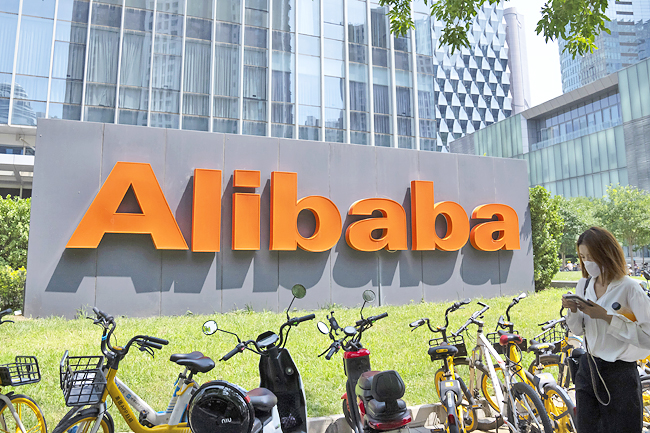HONG KONG (AFP) – Asian stocks were broadly up yesterday to buck losses on Wall Street, led by massive gains for Chinese tech behemoth Alibaba after it announced it would split into six groups.
The Hangzhou-based firm said the changes were intended to “unlock shareholder value and foster market competitiveness”.
Alibaba is one of China’s most prominent tech firms, with operations spanning cloud computing, e-commerce, logistics, media and entertainment, and artificial intelligence (AI).
By 2pm yesterday, its Hong Kong-listed shares were up by more than 12 per cent. Its New York-listed shares were also up in the previous session. “Investors could get hyped on the positive side in the short term,” said Senior Research Analyst at Forsyth Barr Asia Willer Chen.
“Alibaba’s shake-up plan may also lead investors to think of the potential for other tech firms like Tencent to follow suit.”
Tencent and Baidu also advanced. At mid-afternoon, the Hang Seng Index was up by just under two per cent, having troubled three per cent earlier in the day.
The Nikkei 225 index had advanced 1.33 per cent by the close in Tokyo, where Softbank, which owns a large stake in Alibaba had risen by just over two per cent.

Despite losses on Wall Street, the Tokyo market proved resilient as “excessive fears over the European financial system dwindled”, IwaiCosmo Securities said.
There were gains on most other Asian bourses, though Shanghai posted small losses.
Following a flattish day in European markets on Tuesday, United States stock indices finished modestly lower, shrugging off a better-than-expected consumer confidence reading.
The closely watched consumer confidence index increased in March to 104.2 from 103.4 last month, The Conference Board said in a statement.
“While consumers feel a bit more confident about what’s ahead, they are slightly less optimistic about the current landscape,” said Senior Director for Economics at The Conference Board Ataman Ozyildirim.
The gains followed last week’s rout over concerns that the turmoil in the banking sector, which sparked the UBS takeover of Credit Suisse could hit other major institutions, such as German giant Deutsche Bank. Bank of England governor Andrew Bailey, whose institution ramped up interest rates last week, sounded a note of caution over banking-sector upheaval.
“We are very vigilant. We are in a period of tension, tightness and alertness,” he told a parliamentary committee on Tuesday.
He added, “My very strong view about the United Kingdom banking system is that it is in a strong position, both capital and liquidity wise”.





